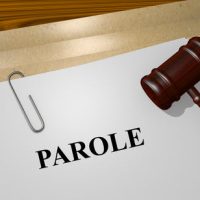What Should You Know About Parole Violation Hearings In Indianapolis?

Criminal offenders released early from the Indiana Department of Correction without any probation are given a parole sentence with specific rules. Violating these rules can lead to a parole violation hearing and, depending on the outcome of this hearing, the offender’s return to prison.
Committing A Parole Violation In Indianapolis
Every parole sentence comes with its own set of rules. Some of the most common rules and, as found in Indiana Code 11-13-3, include:
- Maintaining employment
- Avoiding criminal activity
- Refraining from drug/alcohol usage
- Attending counseling
- Staying within a specific geographical location
- Regularly meeting with a supervising officer
A failure to report to a supervising officer, or to adhere to the other terms of parole supervision, will lead to a violation report being filed with the Indiana Parole Board. Right after receiving a violation report, the Indiana Parole Board must assess whether or not probable cause exists, regarding the parole violation outlined in the report. Assuming the Indiana Parole Board does find probable cause to believe that a parole violation occurred, the parolee will be ordered to a parole violation hearing.
Sometimes, depending on both the parolee’s previous offense and the violation, a warrant may be issued for their arrest. This warrant is granted before a preliminary hearing, which will then lead to a parole violation hearing.
Your Parole Violation Hearing
A parole violation hearing – also known as a “parole revocation hearing” – will occur within either 60 days of the parolee’s arrest or 180 days if the parolee was not arrested. During a parole violation hearing, at least one member of the Indiana Parole Board will be there, to help determine whether a parole violation occurred.
In addition, the defendant can request the presence of an attorney, bring witnesses, invite victims, and give a statement. As the hearing concludes, the Parole Board will determine whether or not a parole violation occurred.
The standard of proof for parole violations differs from other cases in that violations do not need to be proven beyond reasonable doubt. Rather, the standard of proof for a parole violation is merely a preponderance of the evidence, ensuring that if there appears to be a greater than 50% chance a parole violation occurred, then the defendant may be found in violation.
If the court finds the defendant in violation, the parole board determines what sanction the parolee will face. The potential sanctions include:
- The parolee continues serving their parole sentence
- The parolee continues serving their parole sentence, but with modified conditions
- The parolee will be imprisoned on either an intermittent or continuous basis
Should the court find the parolee is not in violation, then the terms and conditions of the defendant’s parole will remain intact.
If the parole board finds that the parolee committed a felony of any sort, then the court will revoke parole and order continuous imprisonment.
Speak With An Indianapolis Parole Lawyer Today
Even though the standard of proof for a parole violation is quite low, that doesn’t mean a poor legal outcome is guaranteed.
If you or a loved one is facing potential parole revocation, you should speak with an Indianapolis parole lawyer today. You can contact Rigney Law LLC today to schedule a free consultation with a member of our legal team.
Sources:
in.gov/idoc/files/03-03-101_Parole_Services__12-1-2015.pdf
law.cornell.edu/wex/preponderance_of_the_evidence
statecodesfiles.justia.com/indiana/2016/title-11/article-13/chapter-3/chapter-3.pdf
